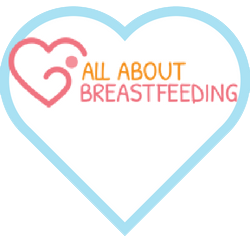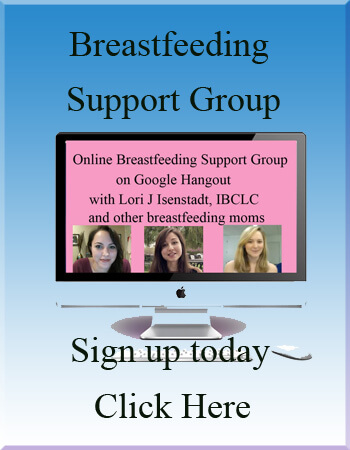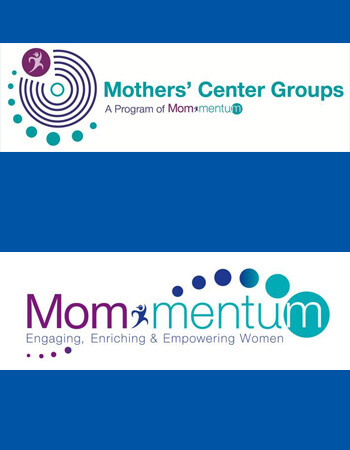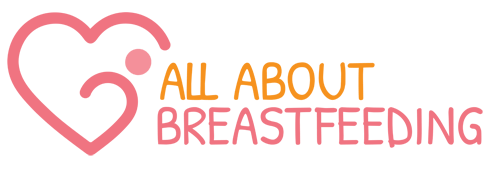
Welcome to the place where you can easily access TONS of FREE Breastfeeding information and GAIN valuable insight on best tips, how-to’s and “ need to know” about all things breastfeeding related.Our guest today is Margery Grill
Listen now to hear mothers share their breastfeeding stories. Hear interviews with well known authors pediatricians, midwives, doulas and others who eagerly share their knowledge.
Margery Grill
” I’m sitting in the chair now that I pumped for so long in my bedroom and I had just done it for so long that for me to think about pumping anywhere else in the house is just really weird. I mean this is my pumping chair. But I can remember the last time that I pumped. I remember getting up in the morning and saying: I am not doing this anymore. I just looked at my pump and said: I’m done. I just hit a wall and said: I can’t do it one more time. “

Part 1
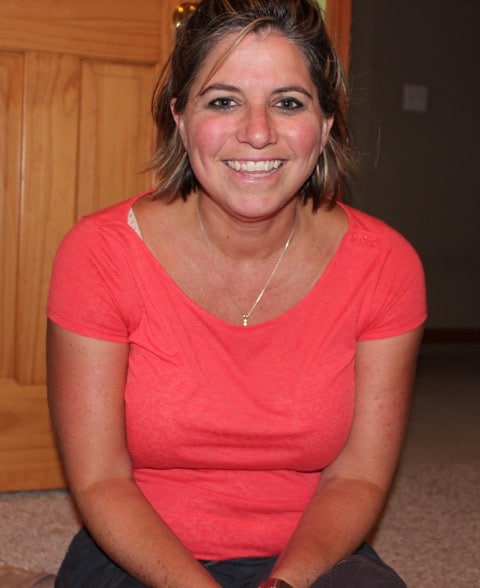
Episode 67 My guest today is a wife and mother of 3 children, Cooper, Sydney and Harrison and is from Toledo, Ohio. She is a labor and delivery nurse for 19 years and about 2 years ago became certified as an IBCLC. As a result of a disastrous delivery and having a baby with cleft lip and palate, she is very passionate and outspoken about breastfeeding, VBAC, reducing the cesarean rates ( especially the first c/sec) and natural birth…. even though she never had one. In her free time, she enjoys reading a lot. She is a self proclaimed birth junkie.
Her Story.
Margery grew up in Southern Indiana in a small town. Margery was 1 of 4 girls and was number 2 in the line. She describes a very typical childhood with a mom that stayed home and a Dad that worked outside the home. The family moved to Toledo, Ohio as a teenager, which was not fun because she left all her friends and “the boyfriend.” She knew that from the time she was a very young girl she wanted to become a nurse. Margery attended a Liberal Arts College and majored in biology because she knew she wanted to do something in the medical field. She first considered becoming a Dr., then thought perhaps a midwife. So, she started with nursing school, but did not go on to pursue midwifery. She is very happy with how things turned out.
Margery was a Labor and Delivery nurse when she became pregnant for the first time. She describes her expectation about the birth being fairly similar to a lot of us first timers. She was going to give birth at the hospital that she worked in at the time and assumed all was going to go fairly easy. The birth was going to go well and the baby was going to breastfeed well and this was going to be easy also. She did not plan on a long labor and pushing for 3 hours. She certainly did not plan on having a cesarean section, however, when she pushed for 3 hours and experienced failure to progress, she wound up with a c/sec. Cooper weighed 5 pounds 15 oz. He was placed on her chest and she felt he did well with breastfeeding from the very beginning. However, once home, he seemed frantic and she felt that since her milk had not come in yet, that he was hungry. So, she gave him a bottle can it did calm him down. By the next day, she did fill with milk and he never needed a bottle of formula after that. Cooper nursed for over a year until she became pregnant with her second. She said that he did not want to nurse anymore so he weaned himself. Probably because the supply went down and perhaps the flavor changed.
She had originally planned on staying home when she became a mom, however, she changed her mind quickly. She was in a new place and felt isolated and looked forward to going back to work and having some social support. She worked Part Time and it was a nice blend of staying home and working part time and it was ideal.
For her next baby, she was very dedicated toward having a VBAC. She practiced yoga, had regular chiropractic adjustments and she had care from a midwife. She was in a different hospital for her second birth. This time around she moved a lot during her labor. She feels this may have had a negative impact on her first labor so she is sure to encourage mothers that she works with to move around. For her second labor, she went into labor on her own, she stayed home as long as possible, showed up to the hospital and after a quick check was told that she was 10 cm. This is the hospital that she worked at. As much as this is what she wanted, She was nervous about being able to push her baby out. She remembers the nurse looking at her and saying she was 10 cm. and looking back at the nurse and asking for an epidural. She pushed in a side lying position and pushed out a baby girl that was 1 1/2 pounds bigger than her first baby. Margery could hardly believe it. She was so excited. Breastfeeding went really well. She latched on easily and did great. Sydney did self wean and Margery was sad about this as she was not ready to wean, but we know you can’t make a breastfeed if they don’t want to.
With her third pregnancy, Margery had her first ultra sound at 22 weeks and a cleft lip and cleft palate was discovered. Her first reaction was to cry and cry as her mind was on breastfeeding and assumed she could not breastfeed her newborn. This weighed heavily on her mind. She knew this was going to be her last baby and she was devastated at the thought of not being able to breastfeed as this was her favorite thing to do with her babies.
She spent time researching breastfeeding and cleft lip and really grieved for what was not going to happen. She was planning another VBAC, however, this labor was quite different. He was 36 weeks when she started hemorrhaging at home. She begged her husband to not call an ambulance and just get her in the car as she just knew she was bleeding way too much. But she was feeling very faint and she had so many clots and she recognized that she had a large blood loss. She then told her husband to call the ambulance. Margery is screaming in her mind that she is going to die. Her husband is a very positive person and kept assuring her that all was going to be okay.
When she got to the hospital, the Dr. breaks her water and said – let’s just get this baby out. She agreed to getting an epidural and after that the birth really started getting hazy. When you get an epidural, your blood pressure goes lower. Her mother has 12 grandchildren and has never been to any of the births. But this one she was worried about her daughter and did attend this birth. Afterwards, her mother said to her – “I could not see how much you were bleeding, but I could hear you bleeding.. it was like a faucet.”
Her Dr. basically pulled the baby out and he then tried to get the placenta out and apparently the uterus came out. Everything that could go wrong, seemed to go wrong. Normally a placenta attaches to the uterine wall. Sometimes women suffer from a life threatening condition called placenta accreta which means that the placenta, rather than just attaching to the uterine wall, but is growing too deeply into the uterine wall. This is what happened to Margery.
She had to go back to the OR. She was somewhat hazy and knew what they were saying, but she just looked at her husband said: “take care of my babies” and her husband told her she was going to be fine. Her Dr. tried several ways to stop the bleeding, but ultimately said to her: I want you to see her son grow up so I am going to take out your uterus. There was so much chaos in the operating room, she knew things were bad. She heard the anesthesiologist yell that they needed to get her blood otherwise she was going to die. She heard someone say they were not sure if she had a pulse. She remembers laying there and looking at them and thinking.. of course I have a pulse. I am here. She next remembered waking up in the ICU and her first two thoughts were: Did they take my ovaries and, I need to pump. Margery had them wake her up every 3 hours to help her pump. She knows they did not want to as she should be resting, but she said she made them! Her baby spent the first few days in the NICU, and she says that couldn’t see him and this was the worst thing. She didn’t know this at the time, but if you have a large blood loss, you are at risk for a low supply. She remembers the first time they brought him to her. She remembers going to the NICU the first time. She remembers putting him to her breast and he seemed to breastfeed, but he was really just hanging out at moms swallowing the milk that was leaking.
When she went to the NICU and asked for help nursing her baby who had cleft palate, she realized there was not anyone who could help her. She wanted more specific information than the basics she got about positioning and putting him skin to skin. She realizes she probably should have done more research, but recognizes that you can only do so much. She didn’t get off to a great start as a result of her birth.
When she went home, she would frequently put him to the breast for most feedings. However, he just was not able to breastfeed. So, she became an exclusively pumping mom and he gained well. He was born in March and she rented a hospital grade pump for the first month because she wanted to be sure to get a really good supply going. After that she used her personal Medeal pump and pumped for a whole year and was able to keep up a good supply. Initially she pumped around the clock but after a few months, she was able to skip the nighttime pumpings. She remembers being tethered to the pump. While she did drop a pump here and there, the pump basically went everywhere with her. Margery kept up a good supply using her personal pump. NOTE: Most mothers who are exclusively pumping have a difficult time establishing a good supply and maintaining it, if they are not using a hospital grade pump.
BEST pumping tip: She highly recommends using a hands free bra.
Harrison is doing really well now. He had his first surgery when he was about 3 months old for lip closure and at a year had another surgery for his palate. He will need one more surgery sometime in the next 3 years.
He is doing really well. We have a really great surgeon close to us in Toledo.
Margery’s Advice to a mom who is going to have a breastfeeding challenge: Get a hold of IBCLC where you live. Have a consult with them beforehand. What was helpful for Margery is that most counties have a “Help Me Grow” program.. Birth to 3. It is called different names in different counties. So, she was set up with a case manager and she would come out to see us. Her son was able to get Speech therapy and other helpful resources that really helped him thrive and it was very helpful to her as a mom.
After coming home from my first ultrasound, I went to my online Mother Center group and just post that this is what I just learned and does anyone have any resources for me. She just knew that she was going to need help and support.
Some people said to her that she did not even have time to process it and she said: well, that is how I process it. And, plus, why would you not want to reach out and get help rather then go it alone. We talked about how different we are and how we process things differently.
We talked about how Margery first found out about Mother’s Center. Someone said something about her moms group and her antenna went up. She asked her to tell her all about this mothers group and the next week she attended her first Mothers group. She remembers times when she would come to the center, drop her kids off in childcare, her 2 little kids, and go to the moms group and sit down and just cry. Margery talked about how it saved her sanity. She knew that every Thursday she could go to MC and go to her group.
In later years someone would just start crying as they started talking and Margery would just say to them: I know, I know. Margery has made some great friends from Mother’s Center. A mutual friend Kate Fineske talked about this podcast and introduced Margery to me. Their boys are in a music class together.
We talked about how Margery decided to become an IBCLC. While she always had an interest in breastfeeding, she feels that after Harrisons birth she decided to go for it. She was hired at the hospital where she is now with the understanding that she get credentialed in a year. And, so she did! Things happened at the right t ime and a the right place. So, she now works at the hospital and splits her time between RN work and Lactation Consulting work.
Margery tells us about her job: One thing she finds challenging is that she finds that she is frequently frustrated. There is a lack of education about breastfeeding. A lot of people don’t understand some of the basics such as the need to frequently put the baby to the breast in order to establish your supply. We both agreed that breastfeeding classes need to be more detailed about the early weeks of breastfeeding.
Margery talks about how hard she works with moms in the hospital. The next day she comes in and then finds out that they are not going to continue breastfeeding. They just don’t seem to work hard enough at it.
A lot of times women feel like they should do it because that is what they think she should. This will probably mean you will not be successful if your heart is not into it.
More woman who are initiating breastfeeding because they want the health benefits for mom and baby and bonding. But during the first few days if they are struggling, we agree that there is a huge drop off when they begin things are a little rough to struggle the first few days. Margery said that the numbers go South in the first 2 weeks.
But it is so frustrating Margery says. “I just don’t understand why moms would not do the best for their baby. At least attempt it? Do not want to do the best for their baby? Why wouldn’t they even want to just try?”
I shared my experience getting feedback from moms. Some mothers say: “I was literally at my worst physically and emotionally at the time. If you had asked me 6 months later,it would be a different story. When I was back in my own body, back to my own self, back physically and emotionally. I wasn’t sleep deprived, overwhelmed, dealing with the shock of being a new mom. Now I can take on the work of learning how to breastfeed. It is the worst thing in that this is the worst time to learn one of the most important skills you will ever need to learn when you are planning to breastfeed your baby.
Lori states: If I had Oprah’s money, I would make sure that every mommy takes an excellent class
and that each mom is seen on Day 1-7 so we can work through together the most common
things that happen, we can improve the breastfeeding rates.
Together Margery and Lori talk about some of the common barriers to breastfeeding:
It is common for pediatricians to say to the mom: it is okay if it doesn’t work.
We want Health care Providers to express a sense of urgency when it comes to Breastfeeding as there is so much more to it than just your baby getting milk. so much more to it than putting your baby to the breast.
We want breastfeeding difficulties to be taken seriously… This isn’t working..Oh my goodness! you have to fix this. Here is the # to an LC This is a top priority.
Contact Info: margery31@gmail.com
search my name of Facebook
Links:-Practice/Placenta-Accreta
The placenta normally attaches to the uterine wall, however there is a condition that occurs where the placenta attaches itself too deeply into the wall of the uterus.This condition is known as placenta accreta, placenta increta, or placenta percreta depending on the severity and deepness of the placenta attachment. Approximately 1 in 2,500 pregnancies experience placenta accreta, increta or percreta.
Breastfeeding Class –aabreastfeeding.com – Local Phoenix breastfeeding class
Submit a comment
your email address will not be published
